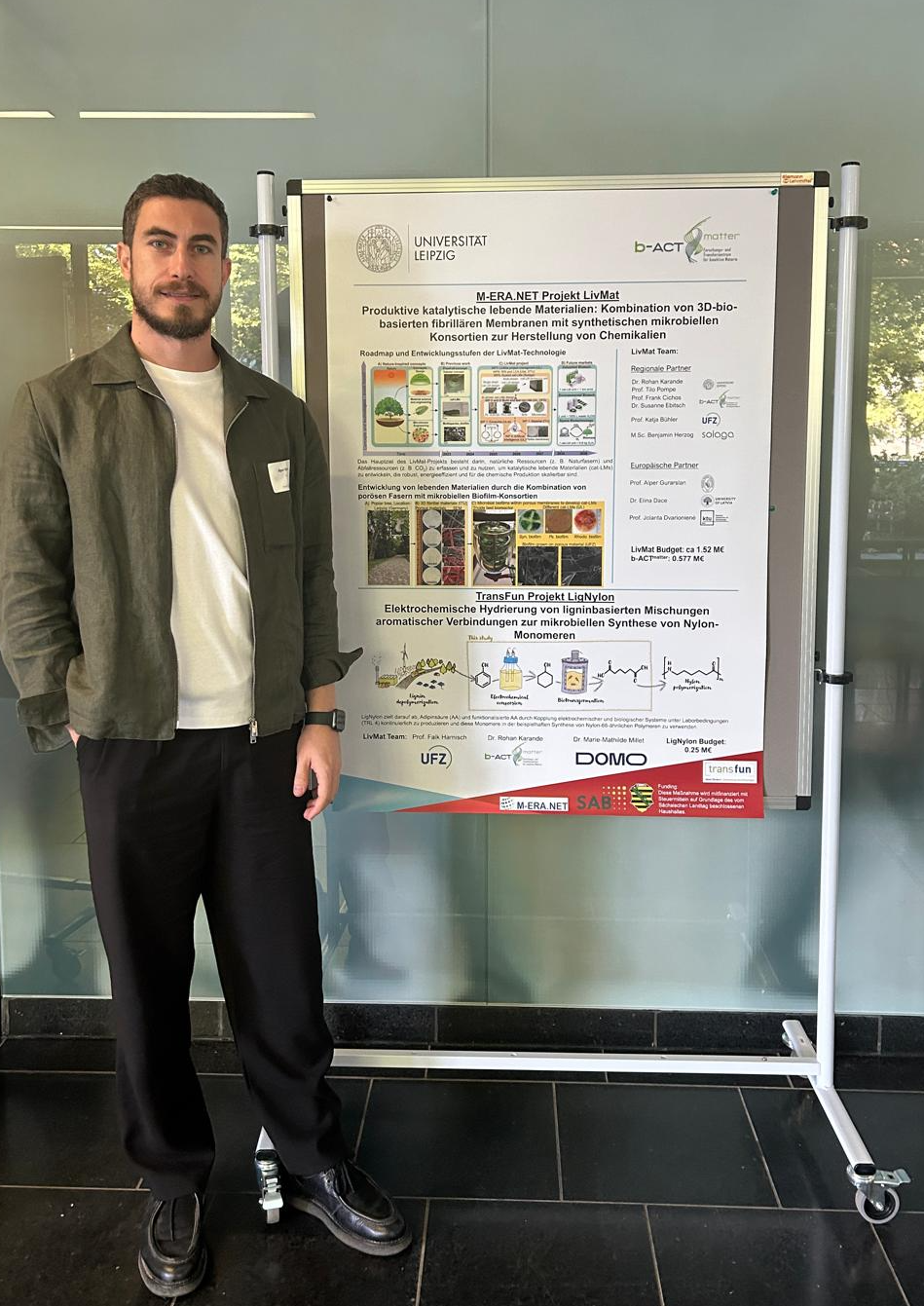The international LivMat project, titled “Productive Catalytic Living Materials: Combining 3D Biobased Fibrillar Membranes With Synthetic Microbial Consortia To Produce Chemicals,” officially launched on July 1, 2024.
This three-year project, coordinated by Alper Gürarslan, a faculty member of our department, involves prestigious international partners including Leipzig University, Helmholtz-Zentrum für Umweltforschung GmbH–UFZ, Solaga UG, Kaunas University of Technology, and University of Latvia. The project aims to transform existing chemical systems that are dependent on fossil fuels and pose environmental risks.
LivMat focuses on the development of durable, energy-efficient, and scalable catalytic living materials (cat-LMs) by utilizing natural resources (e.g., solar energy, natural fibers) and waste resources (e.g., CO2, lignin-derived substrates). This innovative approach not only promotes CO2 capture technologies to reduce greenhouse gas emissions but also encourages the use of natural porous materials, supporting the circular economy.
The LivMat project is considered a significant step in sustainable chemical production and aligns with the goals of the European Green Deal and the Circular Economy Action Plan. We congratulate Alper Gürarslan and his team on this groundbreaking initiative and look forward to the advancements this project will bring to the field of sustainable chemistry.
